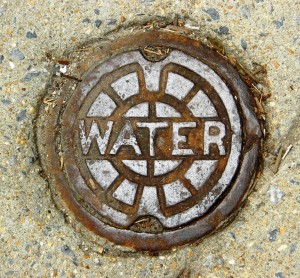By Malorie Letcavage
On December 1, 2015, the Fourth Circuit issued its published opinion in the case of Tommy Davis Construction, Inc. v. Cape Fear Public Utility Authority. The defendant, Cape Fear Public Utility, appealed the district court’s findings and award of attorneys fees in favor of plaintiff, Tommy Davis Construction. Defendant raised four issues on appeal, but the Fourth Circuit affirmed the district court’s judgment in favor of plaintiff and the award of attorneys fees.
Davis Objects to Paying Invalid Impact Fees
Davis Construction (“Davis”) was developing a subdivision named Becker Woods, and arranged to have Aqua NC provide water and sewer services. Aqua NC was the only utility in that part of the county to offer those services, although Water and Sewer District (“WSD”), Cape Fear Public Utility’s predecessor, provided those services in other parts of the county. A County employee told Davis Construction it was necessary to pay WSD impact fees before it could get building permits from the County. WSD did not offer services where Becker Woods was located, and Davis had already paid Aqua NC those fees since it would be the utility providing the services. Despite objecting profusely, Davis paid in order to get the building permits.
About a year later WSD became Cape Fear Public Utility Authority (“Cape Fear”). Davis then applied for more permits for other lots in Becker Woods and was only required to pay the impact fees to Aqua NC for providing the services, and not to WSD.
Davis filed a suit in order to recover the fees it had paid to the county. The District Court found that Cape Fear’s collection of impact fees was “an ultra vires act beyond their statutory authority.” The district court rejected Cape Fear’s defenses of the claims being time-barred or the application of the doctrine of laches. The court awarded Davis a refund of the impact fees and attorney’s fees.
Statute of Limitations Bars the Federal Claims, but not the State Claims
The Court found that Davis’ federal due process claim was time barred by the statute of limitations. It held that the claim was really a §1983 claim, although this was not explicitly stated. The statute of limitations for §1983 claims are borrowed from the statute of limitations in a personal injury action in that state. In North Carolina, this is a three year period that began to run when Davis paid the impact fees. Since Davis then brought the claim five years later, the federal claim is time barred.
However, the Court found that the state law claims were timely filed. It compared the present case to Point South Properties, LLC v. Cape Fear Public Utility Authority (“Point South”). That case had extremely similar facts where impact fees were forced to be paid twice to a utility that was not providing the service. That court found that the applicable statute of limitations was ten years, derived from the catch all in NC. Gen. Stat. 1-56. The Court held this ten year period was also the appropriate statute of limitations, and the state claims were timely.
The Court also rejected Cape Fear’s claim that even if the claims were timely, they were barred by the equitable doctrine of laches. The Court once again referenced Point South and came to the same conclusion as that case; laches did not apply because it is not available in an action at law. Laches also did not apply because Cape Fear did not establish that they were prejudiced by the delay in time.
Cape Fear’s Collection of Fees was Ultra Vires
The Court upheld the district court’s finding that the collection of fees was ultra vires. Cape Fear argued that since they intended to expand their services to that part of the county, the fees could have been considered in furtherance of “services to be furnished.” But the Court held that Cape Fear had only vague plans for forty years and had taken no concrete steps to expanding service to that area. The services to be furnished must take effect in a reasonable time after construction and even ten years after Davis received its permits, Cape Fear still had not taken steps to provide service. Cape Fear’s generalized goal to expand service was not sufficient, and the Court upheld the lower court’s finding of summary judgment in favor of Davis.
Court Upholds Award of Attorney’s Fees
Cape Fear alleged that attorney’s fees were inappropriate because they were not a city or a county as required under the relevant statute. However, the district court found that the County acted outside of its legal authority by requiring Davis to pay the impact fees in order to receive its permits, and that it collected those fees on behalf of WSD. Thus, the Court found that the lower court had the authority to award attorneys fees.
Judgment Affirmed
The Court affirmed the lower court’s grant of summary judgment for Davis and the award of attorneys fees.






